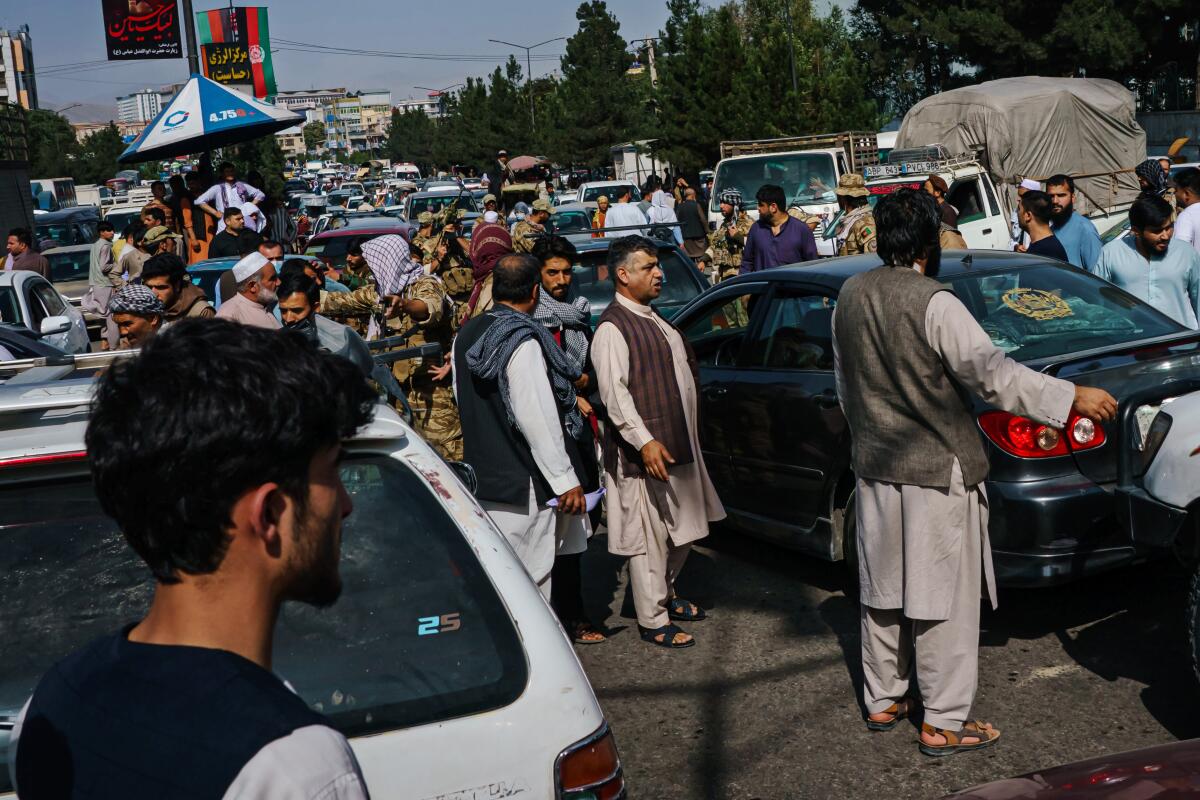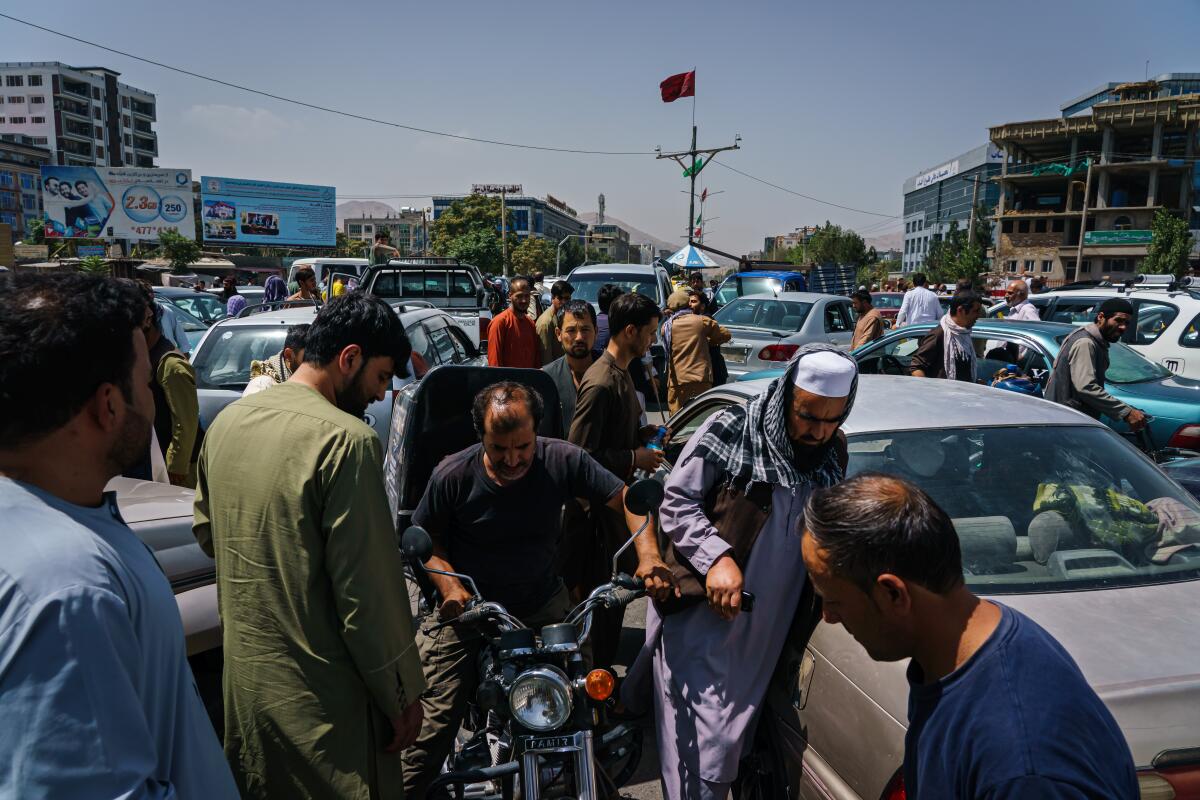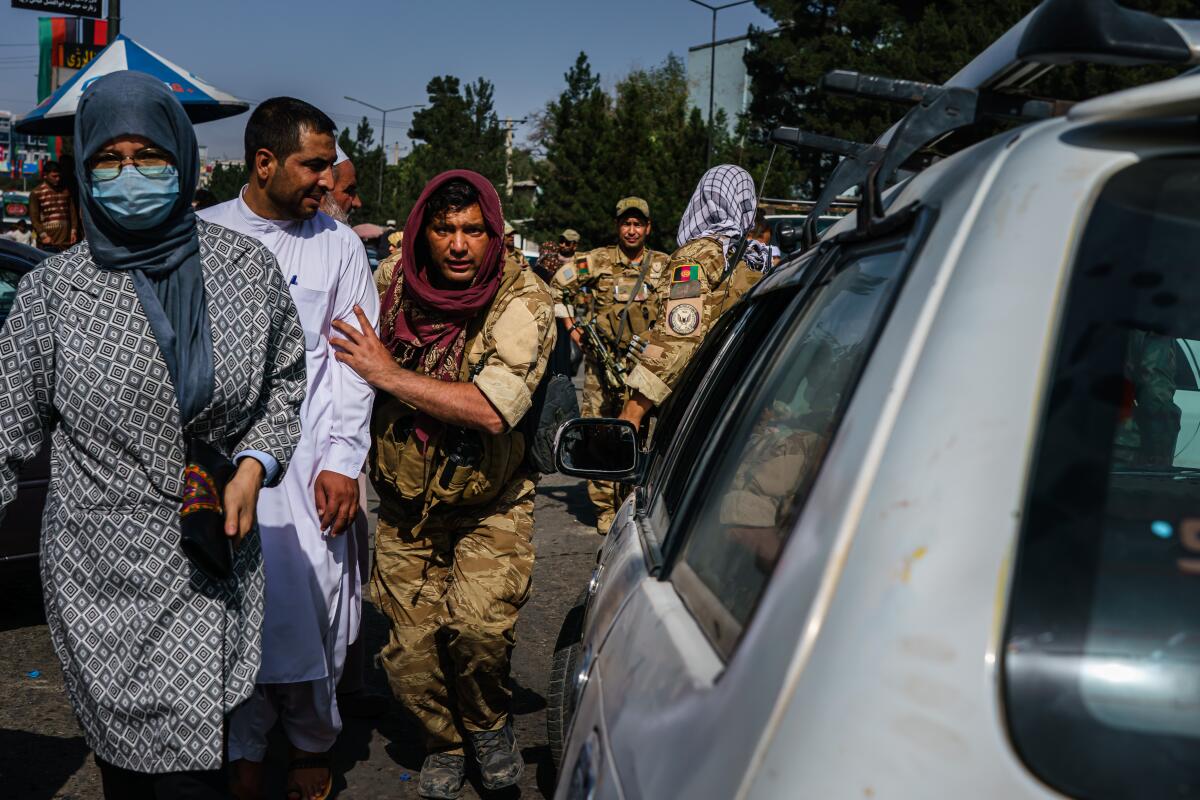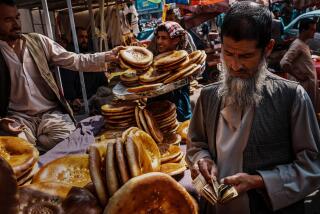A falling capital’s final hours: Fear, havoc and gridlock — then eerie silence

KABUL, Afghanistan — The day began with the blaring cacophony of traffic as Kabulis rushed headlong to attend to last-minute business: a frantic search for an ATM still dispensing cash, a fruitless journey to a shuttered shop, a harrowing trip to the airport in hopes of escaping an advancing foe.
And it ended, in this noisiest of cities, with near-silence — and with broadcast images of turbaned Taliban inside the Afghan presidential palace, the opulent, fortified compound in the heart of the capital whose name means “citadel.”

Kabul, transformed over the past 20 years into a cosmopolitan city of bodybuilding gyms and burger joints, gaudy wedding halls and frozen-yogurt bars, had fallen to the insurgents in the same manner as much of the rest of the country: with hardly a fight.
That surreal defeat — as if a film was suddenly fast-forwarded — seemed to herald a return to darker, more repressive times.
Within hours of the first Taliban fighters appearing early Sunday on the city’s outskirts, President Ashraf Ghani had fled the country, signaling the government’s effective collapse. The U.S. Embassy was emptied of its staff; helicopters clattered overhead, carrying diplomats to the airport.
In the sweltering summer heat of Kabul’s streets, tempers were short and nerves frayed. Fistfights broke out at some intersections. Faces of passersby were stamped with expressions of sadness or anger, or both. Pedestrians — adults and small children — wove between cars caught in standstill traffic jams.
Emerald trader Abdul Qayoun said he feared a Taliban takeover would trigger instability in the city of 6 million people. He had already emptied his shop of valuables, stashing them away for safekeeping.

Among city residents, word spread quickly of a prison break at a gigantic jail on the city’s east side. By nightfall, warnings circulated on social media, telling people to stay inside and lock their doors.
Throughout the day, Afghan police abandoned checkpoints and traffic posts across Kabul. Within hours, some had been replaced by Taliban fighters.
The insurgents’ leadership issued a statement saying the only Taliban aim in the city was preserving order and safety — but ordinary people spoke only of their fear. Near the city center, one Afghan soldier made a throat-slitting motion.
“Afghanistan is dead. I am dead,” he said.
Despite two decades of an American-led military presence that was deeply woven into daily life in Kabul — blast walls and barricades, lumbering armored vehicles and fortified checkpoints — many in the city had always suspected the Taliban would be back. With the Taliban toppled a scant two months after the terror attacks of Sept. 11, 2001, many of the movement’s disciples blended in and bided their time, knowing their day would come.
On Sunday, as bearded fighters fanned out across the city, women and girls feared the loss of chances to work and study, and men wondered how they would keep their families and livelihoods safe. Kabul remained the capital, but the Taliban were already referring to the country as they had back during their five-year rule: the Islamic Emirate of Afghanistan.
At the international airport, there were desperate scenes as people tried to shove their way inside the terminal in hopes of catching a plane to somewhere, anywhere. Commercial air traffic was halted; only military and official flights were coming and going.
The roar of a helicopter overhead could be heard in the background of a video posted on Facebook by former President Hamid Karzai. With his three little girls surrounding him, their expressions innocent and puzzled, he declared that “we are trying to solve the issue of Afghanistan with the Taliban leadership, peacefully.”
As day turned to night, an uncanny quiet fell, with the remnants of Ghani’s government calling for calm. The Afghan interior minister, Abdul Sattar Mirzakwal, said government forces were helping to maintain security — though few were in evidence by nightfall.
The minister called for a 9 p.m. curfew, telling people to stay off the streets, but it was hard to know whether residents were obeying that directive, or simply hunkering down because they were too afraid to venture out.
As twilight fell, a small contingent of Afghan soldiers were still at their posts on Wazir Akbar Khan hill, overlooking one of the city’s wealthiest neighborhoods. One of them wanted his picture taken near the giant Afghan flag that flies on the hilltop, a landmark that can be seen from far away.
City lights twinkled; only the clinking of the flag’s metal halyard against the flagpole broke the silence. The soldiers looked solemn.
The soldier who asked for a keepsake photo wasn’t a native of Kabul; he was from Badakhshan province, in the far northeast. But for him, he said, the city’s fall was “like a quick death.”
He and his comrades planned to try to return to their home provinces, though he said they would fight if insurgents came to their homes — fearing, like many who worked for the government and security forces, that they might face reprisal.
Back in his shanty-like quarters, the soldier looked around, let out a deep sigh.
Then, for the last time, he took off his uniform.
Staff writer Yam reported from Kabul and staff writer King from Washington.
More to Read
Sign up for Essential California
The most important California stories and recommendations in your inbox every morning.
You may occasionally receive promotional content from the Los Angeles Times.











